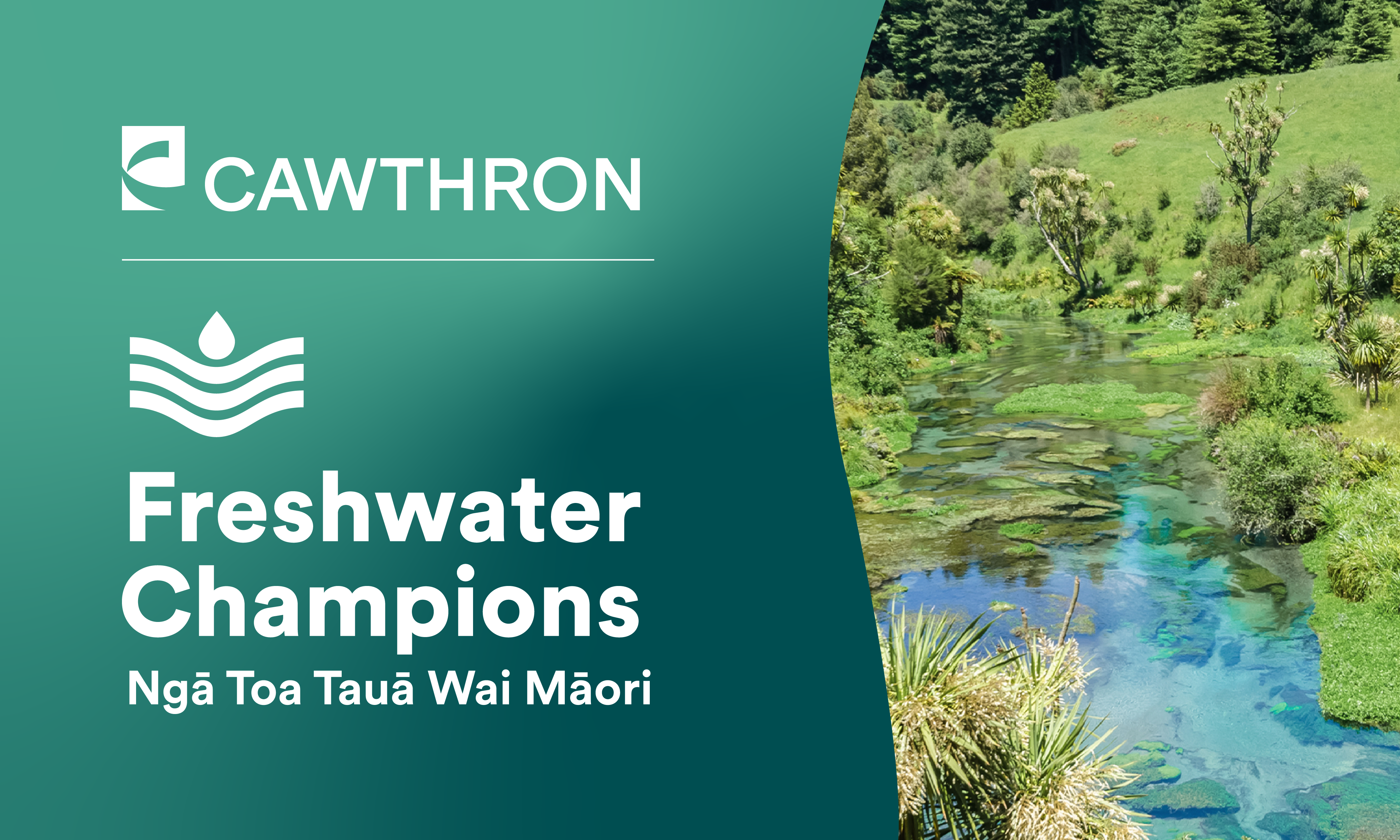National Freshwater Champions Celebrated
23 May 2024
An educator, an artist, two community catchment groups and some trail-blazing farmers are being celebrated as inaugural, 2024 Freshwater Champions.
This new event, which is a refreshed version of the previous New Zealand Rivers Awards, was attended by hundreds of people at Te Papa in Wellington on Thursday night (23 May) where the five champions were announced. They are;
Burke Family, Pukekauri Farms at Katikati, Bay of Plenty
Professor Huhana Smith, Kuku, Horowhenua
Mel McColgan, Te Tauihu (Top of the South)
Moutere Catchment Group, Tasman Bay
Project Parore, Northern Tauranga
More than 50 nominations from throughout New Zealand were submitted for the awards that are designed to celebrate and share the work being undertaken by groups and individuals to restore and protect the health of rivers, lakes, wetlands and aquifers. The awards are run by Cawthron Institute, supported by NZ Landcare Trust and National Science Challenge, Our Land and Water.
A team of five scientists – four from Cawthron Institute and one from Our Land and Water – assessed nominations to identify the five champions who are making outstanding contributions in different ways to improve water quality and environmental outcomes.
The Burke Family from Bay of Plenty received their award for Individual/Family Actions. Over more than three decades they have developed eight wetlands, fenced waterways, reticulated stock water and retired a quarter of their 300ha sheep and beef farm into forest. Assessors described them as “genuine trailblazers” who proved that it’s possible to enhance the environment without jeopardising profits.
Two catchment groups were named champions. Project Parore, located in the Northern Bay of Plenty, took out the Established Catchment award with its solid track record of growth and diversification over 20 years. Starting with a small group trying to increase native bird numbers in Uretara Estuary, it now encompasses eight catchments from hills to ocean and is a “shining example of how to grow a multi-catchment entity that will achieve long-lasting results for many generations.’’
Further south, in Tasman Bay, the Moutere Catchment Group was identified as a Freshwater Champion for its Early Impact. It began only five years ago and now has more than 200 members who have planted 500,000 native trees, constructed two major wetlands and established 50km of riparian fencing. Their motivation to improve waterways has created an invaluable template for other rural communities.
Professor Huhana Smith was named Te Ao Māori Freshwater Champion for seamlessly interweaving her skills as an artist, academic and landowner into being a hands-on kaitiaki of freshwater in Horowhenua. Assesors noted her mahi drew people, the environment, art and the visual recording of actions for the betterment of all.
Independent freshwater educator and advocate Mel McColgan received her Freshwater Champion Award for engagement with schools and communities across Te Tauihi. Operating as both a volunteer and in contract roles, she works tirelessly, using a range of different methods to share her knowledge and passion for restoring freshwater environments.
Two other projects received Special Recognition. The Tararua Plantain Project run by DairyNZ and Tararua farming leaders was applauded for Innovation, while Western Springs College – Ngā Puna o Waiōrea received recognition for their rangatahi involvement in the Waititiko awa (Meola Creek) restoration in Auckland.
Speaking on behalf of assessors, Cawthron Freshwater Ecologist Kati Doehring said they were thrilled with the number and range of entries.
“While this made it hard to determine just a small number of Champions, we are delighted by the stories and experience that our Champions offer to inspire others on this important journey.”
A three-minute video has been produced with each Champion to celebrate and share their mahi. They also received a certificate and a modest cash prize.
“On behalf of Cawthron, I’d like to thank each and everyone of you who are out there doing amazing work to restore our rivers, lakes and aquifers,’’ Doehring said.
Cawthron Institute is New Zealand’s largest independent science institute based in Whakatū Nelson. One of its core objectives is to protect and enhance aquatic environments.
